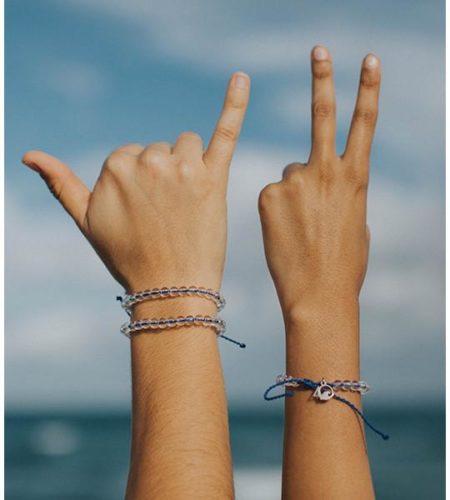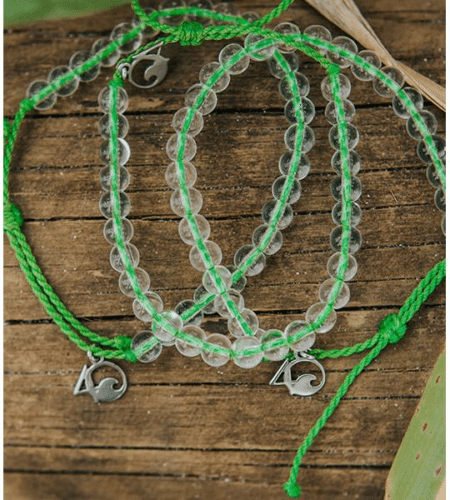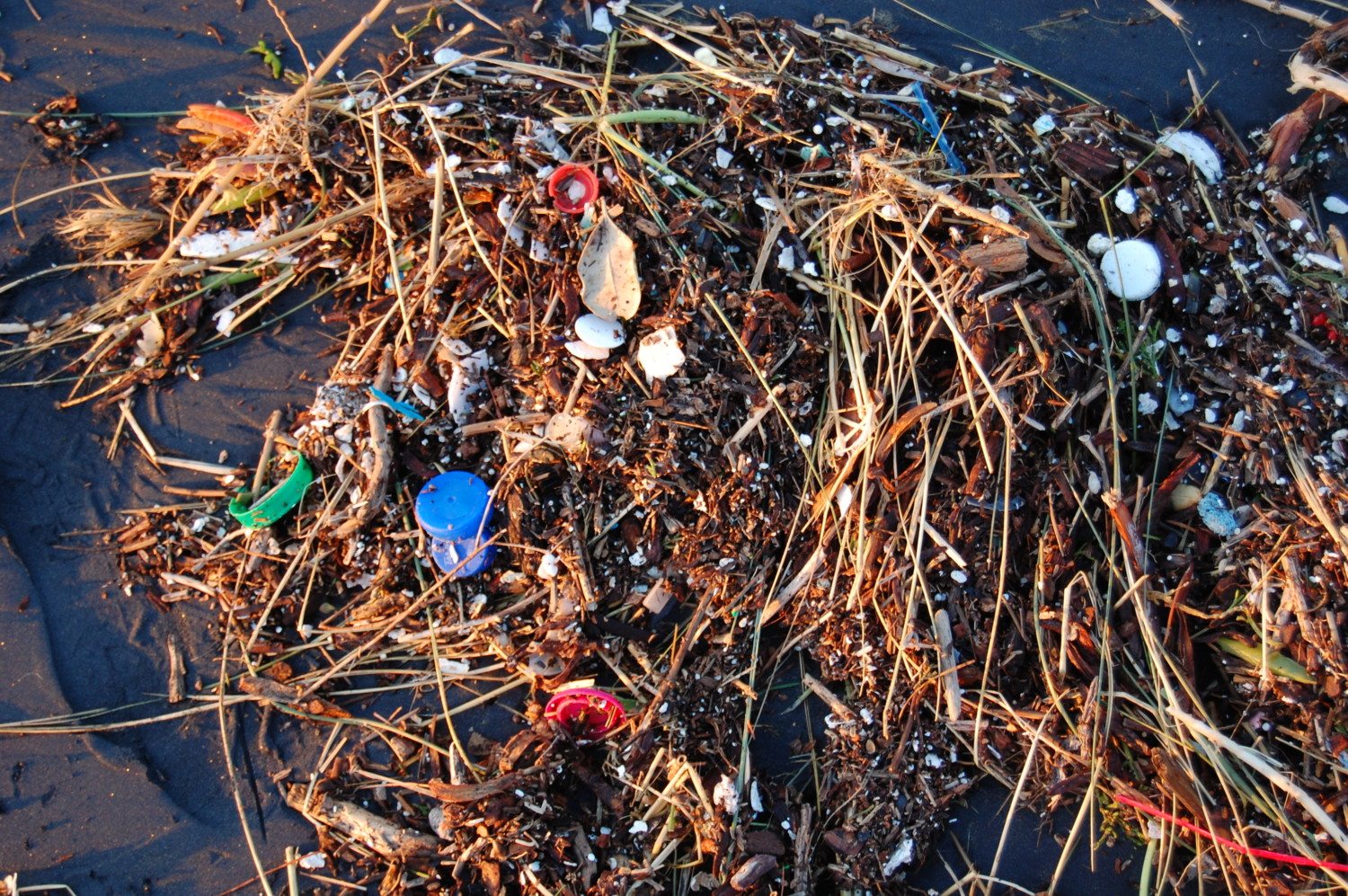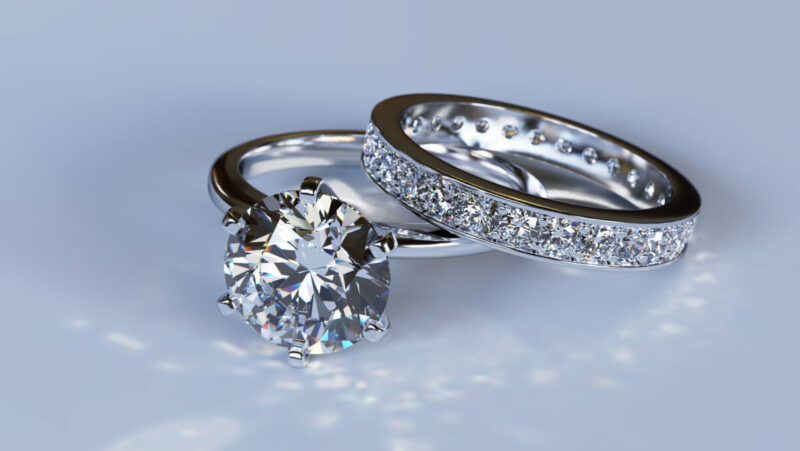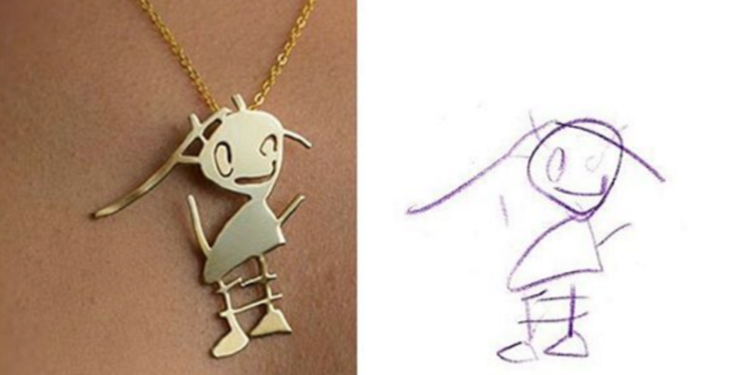Buying This Bracelet Cleans A Pound Of Trash Out Of Our Oceans
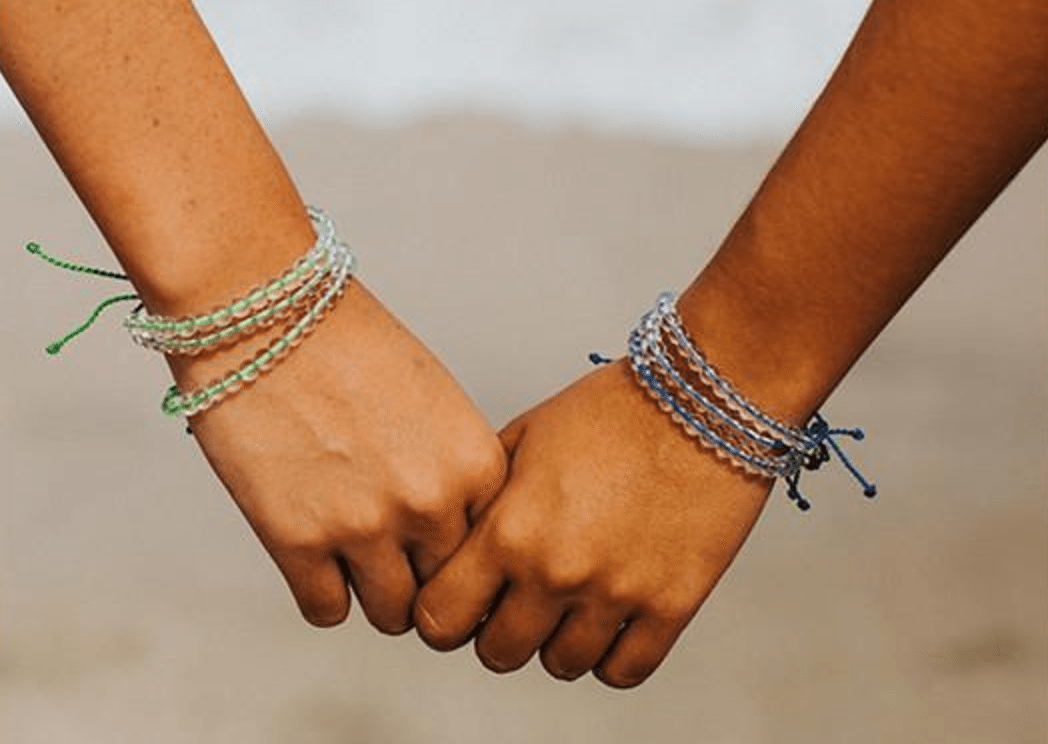
There is a disgusting amount of plastic in our oceans. In 2015, scientists calculated that anywhere between 15 and 40 percent of our plastic waste ends up in the water or on the beach. That’s about 4 million to 12 million metric tons of plastic that washed offshore—around 1.5 percent to 4.5 percent of the world’s total plastic production—in 2010 alone. It’s enough to cover every single foot of coastline on the planet. And that’s a lot of coast.
Luckily, one company is trying to help… by selling bracelets.
4Ocean collects one pound of trash from the ocean for every bracelet purchased. The bracelets are made from 100 percent recycled materials, according to the website and includes a cord made of RPET (recycled polyethylene terephthalate—aka recycled water bottles), beads made from recycled glass bottles and a 4Ocean charm made from stainless steel. There’s even an Earth Day version that comes in green.
The company conducts ocean cleanups around the world, using volunteers to collect, sort, rinse and appropriately recycle any trash found in the ocean. From the Bahamas to beaches around America, 4Ocean and its volunteers have cleaned up a whopping 46,428 pounds of trash from the ocean so far.
At one recent cleanup event at Hobie Beach in Florida, more than 320 pounds of trash were collected in one day alone. This effort is especially crucial given that experts believe the amount of trash and plastic in our seas will double in the next 10 years.
Not only is this unsightly, it’s dangerous. As plastic slowly disintegrates and breaks apart in the water, it becomes something far more insidious called microplastic. These tiny pieces of garbage are easily ingested by marine wildlife and can eventually cause an animal to starve to death. The primary source of microplastic is in consumer products, such as face wash and body scrubs that contains microbeads. While there’s a federal ban on companies using microbeads in rinse-off cosmetics, it doesn’t apply to products such as detergents, sandblasting materials and leave-on cosmetic products.
Secondary microplastics are the fragments that results from the breakdown of larger debris, such as the plastic bags and other plastic refuse that 4Ocean is working to clean up. While one pound may one small part of a very large problem, you can feel good wearing or gifting this bracelet to know your money went to supporting something good.


